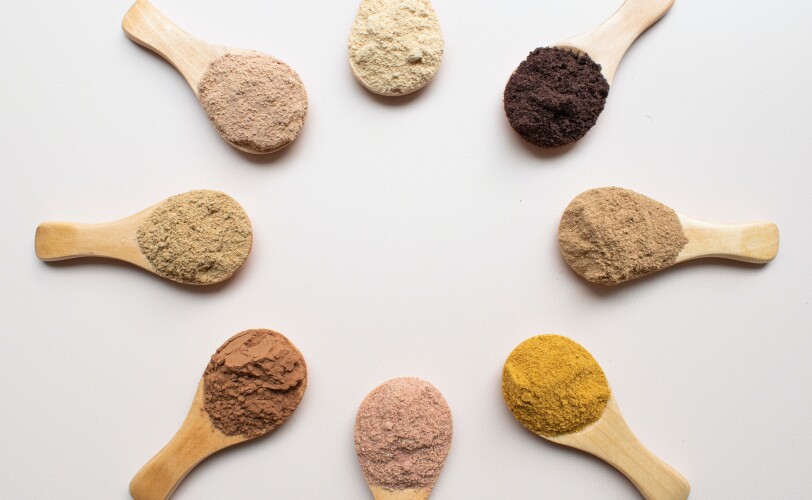A guide to fertility supplements
If you’re thinking about having a baby, or you’re already on your fertility journey, the chances are that you’ve read about or have been told to take supplements. However, with the huge number of products available on the market and access to Dr Google, as well as advice from well-meaning friends and relatives, it can quickly become overwhelming to know how to choose the right supplement for you.

So to make things a little easier, I have created this quick guide for you based on the most common questions I receive from clients.
Should you take supplements when trying to conceive?
Yes, absolutely. Optimising nutrient levels can improve the chances of successful pregnancy in both men and women and is also associated with a baby’s development, health and birth weight.
But why not just get it all from food?
Well, the truth is that while I always promote a ‘food-first’ approach, it can be difficult to get all essential nutrients through food alone. This is due to a number of factors including depletion of minerals in the soil, as well as farming methods and food transport and storage resulting in much less nutrient-dense foods.
It can also be tricky to get all our nutrients from food if we don’t have optimal digestion, and certain nutrients are destroyed while cooking. Finally, even with the best intention, you may have days where you don’t "tick all the boxes", so a good supplement can be like an insurance policy at this crucial time.
Which supplements should I take?
The perfect trio:
Which supplements you take depends on your current health, diet, and lifestyle* but as a general rule, I recommend the following for most people:
- a good quality fertility multi-nutrient (which must include folic acid)
- an omega 3 supplement
- a probiotic
The fertility multi will cover all the basics needed to optimise fertility and prepare your body for pregnancy. I like Wild Nutrition Bespoke Food Grown Fertility (for men and women).
Omega 3 has been shown to reduce the time to conceive but is also crucial for a baby’s health as it’s needed for brain development, especially during the early stages of pregnancy. I recommend Bare Biology.
Probiotics are always a good idea, especially if you have a history of antibiotic use or gut issues. Studies have shown that certain probiotics can help improve the vaginal microbiome which in turn may improve fertility and support a healthy pregnancy.
When should I start supplementing?
As well as implementing lifestyle and dietary changes, supplementing three months before actively trying for a baby is generally recommended.
Which other supplements are worth taking?
If you are generally healthy and have only just started trying for a baby then the above will have you covered. However, if you have been trying for a while or are undergoing assisted reproductive techniques you may also want to consider the following:
For men and women:
CoQ10 - A vitamin-like substance contained in nearly every cell in the body. Because of its role in energy production, it’s a significant nutrient for men with poor sperm motility.
In women with a poor ovarian reserve, CoQ10 supplements improved ovarian response to stimulation. Other studies have also shown when supplemented, CoQ10 may help balance out oocyte (immature egg) deficits leading to infertility.
For men:
L-Arginine has been shown to be an important supplement for men. The heads of sperm contain large amounts of this amino acid which is essential for sperm production.
L-Carnitine is another amino acid crucial for sperm function with studies showing that supplementation increases sperm count.
Can I take too much or are there any supplements I should avoid?
Yes, there are certain nutrients that may be detrimental to your health and even potentially cause damage in the early stages of pregnancy. Make sure you don’t take more than the recommended intake level of any vitamin or mineral. This can easily happen if you combine multis or take a multi and then add individual supplements.
Vitamin A should not be supplemented. Instead, opt for its precursor, beta-carotene.
Be mindful of herbal remedies as many are contraindicated in pregnancy or when undergoing fertility treatment. Only use these under the guidance of a qualified professional.
Does the brand matter and are high street products just as good?
Yes, it absolutely does matter. There are significant differences in quality when it comes to supplements. Many high street brands contain very small amounts of nutrients which will have no impact on your body. Others contain nitrates in forms that are not bio-available to the body (meaning we cannot absorb them). Additionally, especially with supplements such as omega 3, you will want to avoid brands which may be contaminated with pollutants or have additives such as flavours and sweeteners etc. While these may not necessarily be harmful they are certainly not beneficial.
A final word of advice
While it’s a good idea to supplement in order to cover all bases there is so much we can do with food and lifestyle changes to support your body on this journey.
Take a look at my previous article, "How a nutrition professional can support your fertility journey". You can also visit my website to download my free fertility nutrition guide which includes my top five nutrition strategies to increase your chance of successful pregnancy.
*This information is for educational purposes and should not replace medical advice. If you have a diagnosed medical condition you should consult a doctor before making any major changes to your diet or taking supplements.

Find a nutritionist dealing with Pregnancy and preconception
All nutrition professionals are verified



